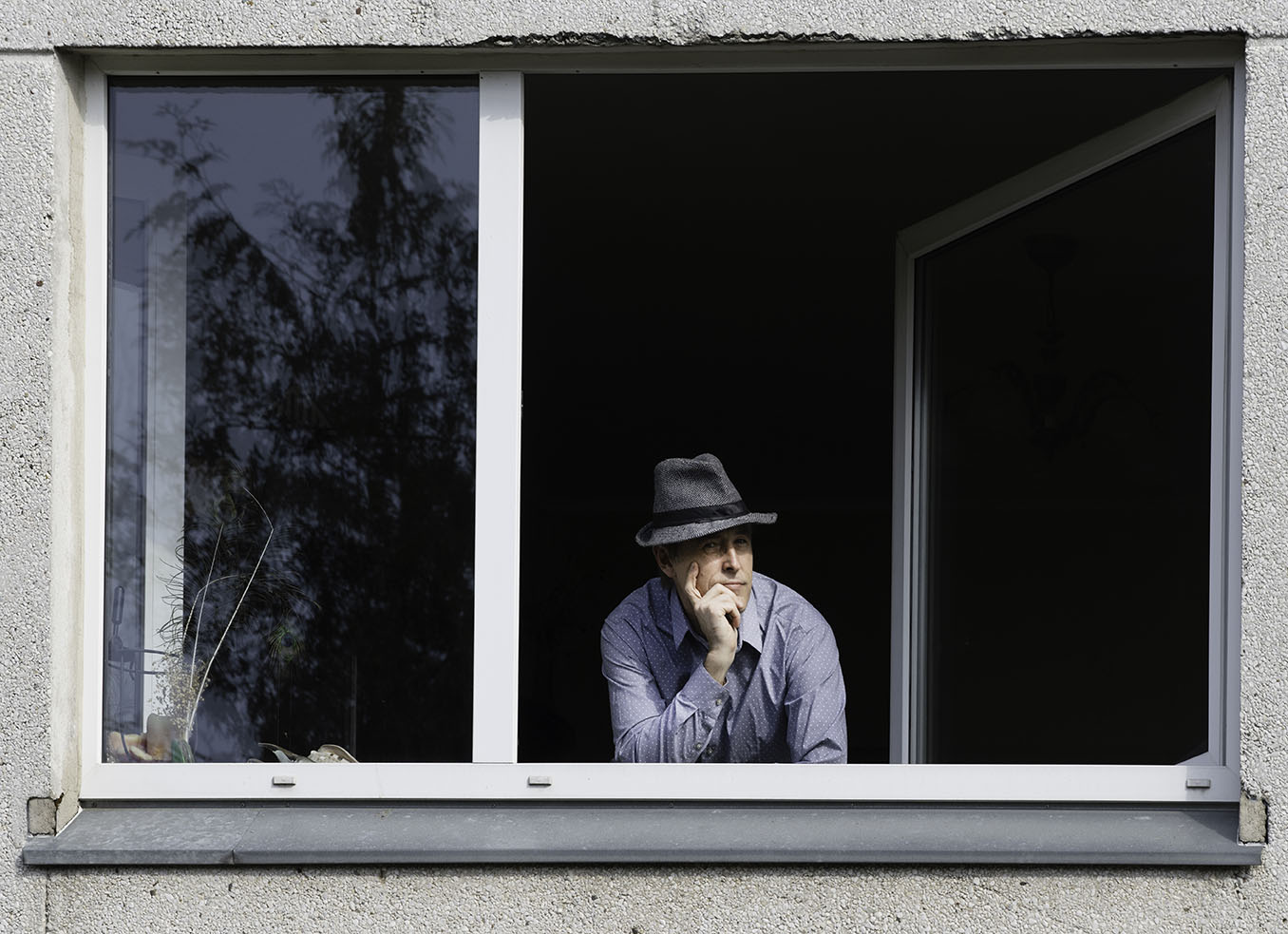 RenataAphotography/Getty Images
RenataAphotography/Getty Images It’s fashionable these days to talk about a “new normal” after we come out of the biggest and longest crisis of our time. After two years of a physically isolating pandemic, we’re often told, it’s not realistic to expect that we can just go back to the way things were. For one thing, we’ve picked up too many new habits.
One of those new habits—perhaps the decisive new habit—is simply staying home. Pretty much everything now comes to us— through Zoom, Amazon, Instacart, Uber Eats, streaming, etc. An enormous industry of convenience is now dedicated to keeping us safely snuggled in our own homes.
Because we’re so used to applauding and buying any upgrade in convenience— “easier and simpler than ever!”—it’s hard to notice when the trend starts to own us. In addition, the pandemic’s imperative to “stay safe” has made that slippery slope even less noticeable. After all, we could always tell ourselves, it’s not that we want to stay home, it’s that we have to stay home.
The problem is that when we get so used to the incredible convenience of staying home, every little outing comes under sharp scrutiny.
The problem is that when we get so used to the incredible convenience of staying home, every little outing comes under sharp scrutiny.
Do I really need to schlepp in traffic and then look for parking? Do I really need to schlepp to this event to socialize with people I don’t know? Do I really need to schlepp to a restaurant when we can just order in– or to a theater when we can just see the film on our big screen? Do I really need to schlepp to a synagogue when I have a choice (in the non-Orthodox world) of many great services on Zoom? And so on.
Post-COVID, the silent enemy of civilized society may well be the Schlepp Factor.
In a revealing op-ed in The New York Times, Michal Leibowitz recounts how she has to force herself to do “the kind of stuff that takes me out of my one-bedroom apartment and into human society.”
Describing a recent synagogue outing, she writes: “I stood when everyone else stood, sat when everyone else sat, sang when everyone else sang. I made awkward small talk with my seat neighbor and high-tailed it home before the socializing began in earnest.”
She adds, however, that “once I was safely ensconced on my couch and my frozen feet were slowly turning back to pink, I found I was glad I had gone.”
Leibowitz captures the ambivalence of the moment. We know it’s good for us to get back out there and socially engage, but a silent voice keeps reminding us how much easier and more comfortable it is to just stay home.
“It’s the way I’ve felt almost every time in recent months that I’ve compelled myself to get out of the house,” Leibowitz writes. “It’s how I felt after I dragged myself to badly soundtracked group fitness classes, several cheesy parties and one lovely weekend retreat… Going out and interacting with people again feels as if it’s going to be difficult — and it often is, at least a little — but I am always glad I did it.”
Of course, for plenty of people there is no ambivalence. They’re glad to go out from the get go. They have embraced with a vengeance the return to in-person gatherings of all sorts. For those social creatures, the forced isolation was probably a form of psychic torture. But they’re just being true to their human race: How could our species have survived without the indispensable instinct to gather in person to solve countless problems and nourish one another in countless ways?
Perhaps the best argument to leave our homes is that it’s not just good for us, it’s also good for others. Think, for example, of the millions of elderlies in our society who have been mired in loneliness since the pandemic hit. Isn’t it good for them if we force ourselves to go out and offer them some company?
Think of the millions of elderlies who have been mired in loneliness since the pandemic hit. Isn’t it good for them if we force ourselves to go out and offer them some company?
This current “stay at home” moment, brought on by a perfect storm of a deadly pandemic and the astonishing convenience of a delivery industry, is really an anomaly when seen through the millennia of human existence.
But anomaly or not, it’s our current reality. Will ever-growing convenience own us and keep us further isolated? Or will we make that extra effort to get back out there and socially engage, as we have since time immemorial?
On Friday night, at Seder tables around the world, the great majority of Jews will get back out there and socially engage, in person, in real time, without Zoom or Uber Eats.
If we can go back to our “old normal” levels of social interaction, we can stop convenience from conquering our humanity.
Here’s my wish for a Fifth Question: “What will I do over the next year to re-engage with people and communities in person, especially to help cure the disease of loneliness, as we are doing here tonight?”
It’s true that we can never stop technological progress, but if we can go back to our “old normal” levels of social interaction, we can stop convenience from conquering our humanity.























 More news and opinions than at a Shabbat dinner, right in your inbox.
More news and opinions than at a Shabbat dinner, right in your inbox.